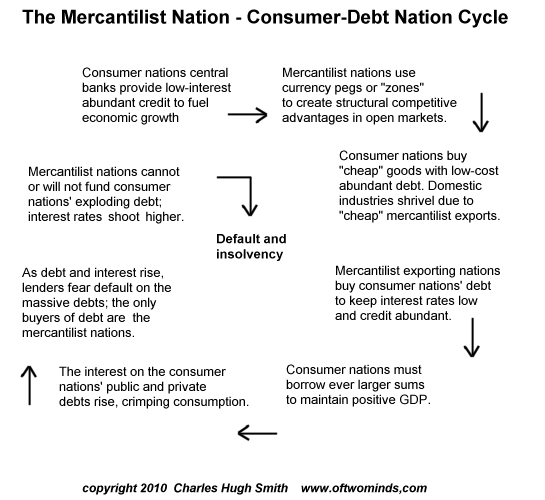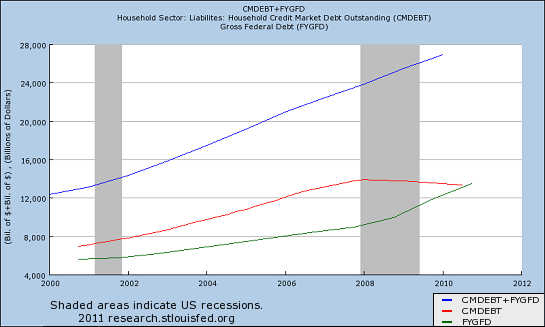How Much Would It Cost To Buy Congress Back From Special Interests?
Here's a thought: let's buy our Congress back from the special interests who now own it. We all know special interests own the U.S. Congress and the Federal machinery of governance (i.e. regulatory capture). How much would it cost the American citizenry to buy back their Congress? The goal in buying our Congress back from the banking cartel et al. would not be to compete with the special interests for congressional favors--it would be to elect a Congress which would eradicate their power and influence altogether. A tall order, perhaps, but certainly not impossible, if we're willing to spend the money to not just match special interest contributions to campaigns but steamroll them. A seat in the U.S. Senate is a pricey little lever of power, so we better be ready to spend $50 million per seat. Seats in smaller states will be less, but seats in the big states will cost more, but this is a pretty good average. That's $5 billion to buy the Senate. A seat in the House of Representatives is a lot cheaper to buy: $10 million is still considered a lot of money in this playground of power. But the special interests-- you know the usual suspects, the banks, Wall Street, Big Pharma, Big Insurance, Big Tobacco, the military-industrial complex, Big Ag, public unions, the educrat complex, trial lawyers, foreign governments, and so on--will fight tooth and nail to maintain their control of the Federal machinery, so we better double that to $20 million per seat. Let's see, $20 million times 435.... That's $8.7 billion to buy the House of Representatives. It seems we're stuck with the corporate toadies on the Supreme Court, but the President could scotch the people's plans to regain control of their government, so we better buy the office of the President, too. It seems Obama's purchase price was about $100 million, but the special interests will be desperate to have "their man or woman" with the veto power, so we better triple this to $300 million. Add these up and it looks like we could buy back our government for the paltry sum of $14 billion. This is roughly .0037% of the Federal budget of $3.8 trillion, i.e. one-third of one percent. That is incredible leverage: $1 in campaign bribes controls $300 in annual spending--and a global empire. Once we bought back our government, what would be the first items on the agenda? The first item would be to eradicate private bribes, a.k.a. private campaign contributions and lobbying. If you allow $1 in campaign contributions, then you also allow $10 million. There is no way to finesse bribery, so it has to be cut and dried: no member of Congress can accept any gift or contribution of any nature, monetary or otherwise, and all campaigns will be publicly financed. Is this system perfect? Of course not. There is no perfect system. But the point here is that a system which allows even a $1 private contribution to a campaign cannot be restricted; after the courts have their say, then all attempted limitations prove worthless. So it's really all or nothing: either we put our government up for auction to the highest bribe, or we ban all gifts and private campaign financing and go with public financing of all elections in the nation. That is the only practical and sane solution. Any proposal that seeks to finesse bribery will fail, just like all previous attempts at campaign finance reform. Any member of Congress who accepts a gift, trinket, meal, cash in an envelope, etc. will lose their seat upon conviction of accepting the gift. Once again, you can't finesse bribery. It has to be all or nothing, and the only way to control bribery is to ban it outright. As for lobbying, thanks to a Supreme Court dominated by corporate toadies, it will be difficult to ban lobbying outright. However, that doesn't mean Congress shouldn't try to force the toadies on the Supreme Court to make a distinction between a corporation with $100 billion in assets and billions to spend on bribes and a penniless citizen. (Those two are not coincidental; in a nation run by and for corporations, the citizens all end up penniless unless they own or manage said corporations, or work for a Federal fiefdom which can stripmine the nation at will.) Congress should pass a law banning paid-for lobbying. If a citizen wants to go to Congress and advocate a position, they are free to do so--but they can't accept money to do so. If they receive any compensation from any agency, enterprise, foreign government, other citizen, you name it, from any source, then they will be sentenced to 10 years of fulltime community service in Washington D.C., picking up trash, etc. If the Supreme Court toadies strike down that law, then here's another approach: Require all paid lobbyists to wear clown suits during their paid hours of work. In addition, all lobbyists are required to wear three placards, each with text of at least two inches in height. The first placard lists their total annual compensation as a lobbyist. The second lists the special interest they work for. The third lists the total amount of money that special interest spent the previous year on lobbying, regulatory capture, bribes to politicos and political parties, etc. Every piece of paper issued by lobbyists must be stamped in large red letters, "This lobbying paid for by (special interest)", and every video, Powerpoint presentation, etc. must also be stamped with the same message on every frame. The second item on the agenda is a one-page tax form. The form looks like the current 1040 form except it stops at line 22: TOTAL INCOME. A progressive flat tax is then calculated from that line. Once again, you cannot finesse bribery or exemptions, exclusions, loopholes and exceptions. Once you allow exemptions, exclusions, loopholes and exceptions, then you've opened Pandora's Box of gaming the system, and the financial Elites will soon plow holes in the tax code large enough to drive trucks through while John Q. Citizen will be paying full pop, just like now. The entire charade of punishing and rewarding certain behaviors to pursue some policy has to end. Any deduction, such as interest on mortgages, ends up creating perverse incentives which can and will be gamed. It's really that simple: you cannot finesse bribery or exemptions, exclusions and loopholes, because these are two sides of the same coin. The tremendous inequality in income, wealth, power and opportunity which is distorting and destroying our nation all flow from the inequalities enabled by bribery and tax avoidance. The only way to fix the nation is to eliminate bribery (campaign contributions and lobbying) entirely, and eliminate tax avoidance entirely by eliminating all deductions, exemptions, loopholes, etc. State total income from all sources everywhere on the planet, calculate tax, done. When you think about how tiny $14 billion is compared to the $3.8 trillion Federal budget and the $14.5 trillion U.S. economy, it makes you want to weep; how cheaply we have sold our government, and how much we suffer under the whip of those who bought it for a pittance. Of Two Minds Kindle edition: Of Two Minds blog-Kindle
Readers forum: DailyJava.net.
Order Survival+: Structuring Prosperity for Yourself and the Nation (free bits) (Mobi ebook) (Kindle) or Survival+ The Primer (Kindle) or Weblogs & New Media: Marketing in Crisis (free bits) (Kindle) or from your local bookseller.Thank you, Radu M. ($100), for your outrageously generous contribution to this site -- I am greatly honored by your support and readership. Thank you, Eugene K. ($10), for your much-appreciated generous contribution to this site-- I am greatly honored by your support and readership.


























